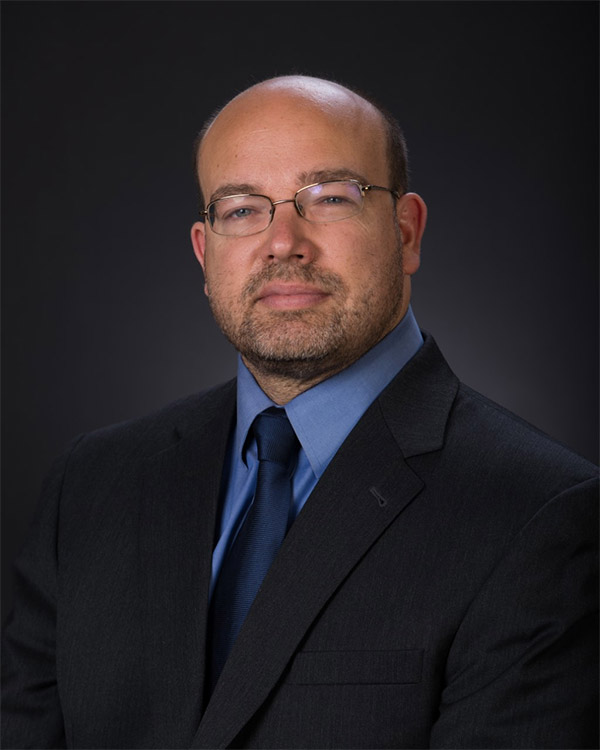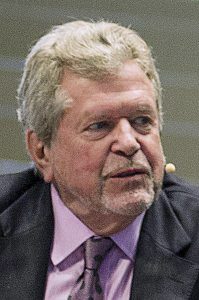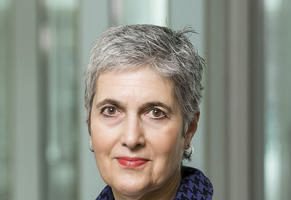Geoffrey Kemp joins Nikolas Gvosdev for the 2022 Summer Assembly’s Middle East Update. Kemp has hosted Chautauqua’s Middle East Update since 1993. Kemp and Gvosdev last presented the update together in 2018 when they first touched on Russia’s relations in the Middle East.
This year’s conversation, earlier than previous years in the season, is at 3:30 p.m. Monday, June 27, in the Hall of Philosophy and takes a renewed focus of Russia’s role in the Middle East, as well as what the Russia-Ukraine war has meant, and will mean, for politics in the Middle East.
“The primary focus is going to be on how the Ukraine war has affected Russia’s policy in the Middle East, and how that affects Middle East politics,” said Kemp, senior director of Regional Security Programs at the Center for the National Interest.


The ongoing war in Ukraine called for a change of topics for this year’s Middle East Update.
“The invasion of Ukraine was right out of the blue, but the reason we chose to do the Middle East Update in Week One was because the theme of Week One is international relations,” Kemp said.
The conversation will touch on other topics, such as the shift to green energy, the Abraham Accords, the Israeli-Palenstinian conflict, and demographic changes in the region.
“We’re going to really try to get our hands around these major disruptions — COVID-19 and war in Ukraine — that have occurred since we were last in Chautauqua,” said Gvosdev, professor of national security affairs at U.S. Naval War College. “The world of 2022 is fundamentally changed from the world of 2018. We’re entering into uncharted waters.”
In 2018, Gvosdev discussed the importance of oil and other fossil fuels in both Russia and the Middle East, and how it relates to the rest of the world. The United States continues to call for sanctions on Russia as the war in Ukraine continues, and on Iran, regarding the Iran Nuclear Deal, Gvosdev said.
“(The) tradition has been, the United States can really insist on strong sanctions on Iran, or strong sanctions on Russia, (but) it really can’t sanction both simultaneously because Europe and other regions of the world need energy,” Gvosdev said. “If they’re asked not to get it from Russia, then Iran becomes one of the alternative suppliers.”
The question of energy sits in the center of everything, Gvosdev said, as it impacts the Iran Nuclear Deal, human rights, and Middle East relations with the United States and Russia.
With the war in Ukraine, economies need energy now, especially in oil and natural gas. Russia will likely take the less lucrative energy markets, while Middle Eastern producers will take the majority of the more profitable markets in the west, Gvosdev said.
“You have these pressures of economies, particularly in Europe, that are going to be squeezed for energy over the upcoming years, depending on how things turn out in Ukraine,” he said. “That energy is going to have to come from the Middle East.”
As more of the world embraces the green energy movement, demand for fossil fuels has decreased. The U.S. and others have used moving toward greener energy to distance themselves from Middle Eastern resources. But due to the war in Ukraine and worldwide shortages, that movement has been hampered.
“Europeans are going to start burning more coal to make up for shortages in natural gas,” Gvosdev said. “We’re probably going to see a reversion away from some of the climate targets, which is going to wipe out any of the advantages we made during the COVID-19 pandemic.”
Because the situation in the Middle East, war in Ukraine, and a pathway to cleaner energy are all continuously changing, Gvosdev believes there isn’t a clear solution. Within the Middle East itself, and in the greater sense of the world, “it very much is in flux,” he said.




